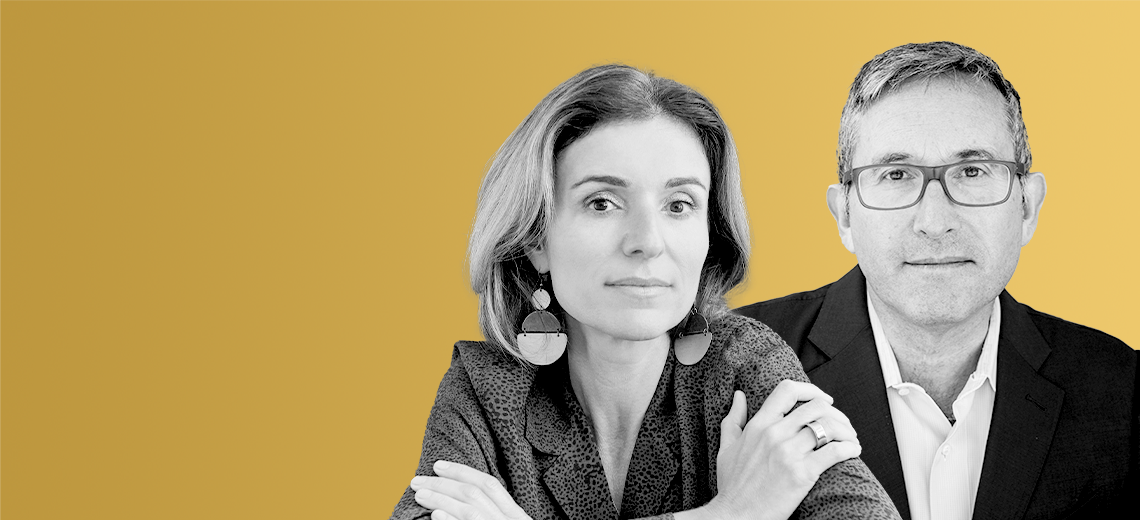This is an episode of the Glossy Beauty Podcast, which features candid conversations about how today’s trends are shaping the future of the beauty and wellness industries. More from the series →
Subscribe: Apple Podcasts • Spotify
While health tracking devices are not new, Ōura, best known for its $300 Oura Ring, has somehow seamlessly bridged the worlds of technology, wellness and design, so much so that Kim Kardashian, Jack Dorsey and Prince Harry are all fans. That unlock happened largely due to the ring’s focus on sleep, according to Oura CEO Tom Hale
“Most fitness wellness trackers are oriented around ‘get more activity,’ ‘get going’ and ‘get out there,’ and we’re like, ‘Hey, relax and recover, make sure that you’re well-rested,'” Hale said on the latest episode of the Glossy Beauty Podcast.
CMO Karina Kogan agreed, “There is now a movement in culture, a move away from sick care to self-care. Historically, when you think about tracking anything in your health people tended to count calories and count steps. It was all about weight loss,” she said. “Now, consumers are thinking about longevity. They’re thinking about their immunity. They’re thinking about how can I live longer.”
Ōura, the Finnish parent company of the Oura ring, launched in 2013 and on Kickstarter no less. While the original Oura ring was bulker in design, much like any piece of technology, the ring became sleeker and more technologically enabled. To date, the company has sold nearly 1.5 million rings and has a $2.55 billion valuation.
This week, the company launches its latest innovation, the Oura Gen3 Horizon which is reminiscent of a wedding ring and comes in a rose gold finish. It continues to track Ōura’s hallmarks such as daytime and live heart rate, advanced temperature sensing, blood oxygen sensing, all while providing consumers more options.
Below are additional highlights from the conversation, which have been lightly edited for clarity.
A culture shift
Kogan: “It’s all it’s a broadening the definition of health, so it’s not just about how many steps you took and how many calories you burned. It’s also about how well you slept, how much time you spent in REM or deep sleep, how much stress you’re undergoing, whether it’s physical stress or emotional stress, it’s about tuning into other aspects, other biometrics or biomarkers. I think consumers are very comfortable with metrics and there’s a certain gamification to scores. Oura gives you three daily scores, your readiness, sleep score and your activity, and those help guide you. The range of metrics that consumers are looking at are expanding, consumers want to optimize their life”
A device worth paying for
Hale: ‘The thing I would call out is that wearables start at 200 bucks and go all the way up to 1,000 bucks. We’re sort of right in that sweet spot for wearables. If you mark our price against a fashion ring, you realize that it’s actually quite inexpensive. And if you think about what you’re paying, the value that you’re getting is your health. Quite honestly, it’s one of those things where your health is priceless. What would you pay to preserve your health or have better health? $299 or whatever the price might be depending on what [ring] finish you get, that’s a pittance compared to your health. So we believe that consumers will pay for value. We deliver value, we deliver it over time, and we deliver it in a unique and special way … We introduced a ring with our partner Gucci earlier in the year and this was quite a success. Honestly, I think everyone was a little surprised because the Gucci ring is priced at $1,000 and we sold a year’s inventory in six weeks.”
Future-proofing for uncertainty
Hale: “[With] all the things that are going on in the world today, Covid, a war, more economic upset, inflation, all the things, I think our mission is more important than ever because people are stressed out more than they’ve ever been. If we can do our part to help people understand where they are, meet them where they are, and provide them support for where they are, that’s immensely rewarding. It’s not about some giant outcome. It’s about doing good for the people of this planet, who are right now facing some really, really stressful times.”




